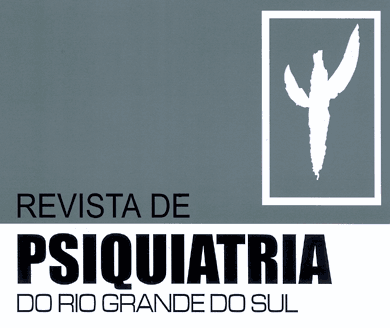BOOK REVIEW
Review of the book entitled Psicoterapia psicanalítica breve
Irene Gondim GretherI; Danielle Rodrigues HasseneII
IMSc. in Psychoanalytic Theory, Universidade Federal do Rio de Janeiro (UFRJ), Rio de Janeiro, RJ, Brazil. Professor, Instituto de Psicologia e Psicanálise, Universidade Santa Úrsula, Rio de Janeiro, RJ, Brazi
IIPhysician. Graduation in Clinical Psychology, Pontifícia Universidade Católica (PUC-RJ), Rio de Janeiro, RJ, Brazil. Graduation in Psychiatry, UFRJ
Correspondence Correspondence Danielle Rodrigues Hassene Av. Ataulfo de Paiva, 135, Grupo 910, Leblon CEP 22440-901, Rio de Janeiro, RJ, Brazil Tel.: +55 21 2294.3030 E-mail: danielle.hassene@cremerj.org.br
Theodor Lowenkron
Porto Alegre, Artmed, 2006, 2nd edition
This book is the result of a life dedicated to the study, research, practice and teaching of Psychiatry and Psychoanalysis. In view of that, it provides a wide review of the main authors and international studies in this area. Furthermore, it exposes to readers the clinical and academic experience of Professor Theodor Lowenkron, whose relevance is represented by his innovative contribution to psychoanalytic knowledge and praxis: Crisis Psychotherapy.
Theodor Lowenkron is an MSc. and PhD in Psychiatry from UFRJ and Professor of Psychiatry at UNIRIO. He is a Professor of Psychiatry and Mental Health at Faculdade de Medicina, UFRJ, and Professor of the Graduate Program in Psychiatry, Psychoanalysis and Mental Health at UFRJ. He is also a member of Sociedade Brasileira de Psicanálise do Rio de Janeiro and Coordinator of the Research Committee and University of the Brazilian Psychoanalysis Association.
This book, a second edition written in a clear and concise language, is easy to read, but such characteristics do not make it less dense and consistent. At the same time, it is totally explanatory, especially due to its academic solidity and wide comprehensiveness. It can thus make complex theories and conceptual operators accessible to readers without psychoanalytic formation, presenting them didactically and coherently.
The author starts his work with a review of brief psychotherapy methods of a psychodynamic orientation that have been used by professionals worldwide. Lowenkron manages to critically comprehend many lines of thinking, based on Freud, and his comments go through names such as Sandor Ferenczi, Otto Rank and Franz Alexander. It is easy to notice the author's analytic concern about not stressing any theoretical or clinical trend to the detriment of others. In agreement with this attitude, he presents research studies being developed in large world centers, such as Tavistok Clinic in London, University of Harvard and McGill University, highlighting the studies by Michael Balint, David Malan, Peter E. Sifneos and Habib Davanloo. With regard to those authors, he is more concerned about pointing the similarities than emphasizing differences, such as therapeutic alliance, early establishment of transference, active interpretation of therapeutic focus, interpretations of bonds with parents and transference with the therapist, as well as planning the end of the therapy in a pre-established period.
The content of this book reflects the work of an extremely qualified professional, the teaching of a beloved professor, the view of a researcher that anticipates facts, as well as the humility of a human figure that does not hesitate in revealing himself to his students, through a unidirectional mirror and with the proper authorization of patients, in his double function, in his full exercise of his activity as a psychotherapist - with all the limitations that praxis imposes us. Readers then have the unique possibility, given to his students, of placing themselves on the other side of the unidirectional mirror and follow the author's psychotherapeutic activities.
As to the possibility of using the classical psychoanalytic technique in a therapy with limited time, as well as feasibility of transferring psychoanalytic knowledge through live interviews, the results obtained represent a large contribution to knowledge. Since the classical psychoanalytic technique did not prove to be adequate to simultaneously treat patients and teach students, the author developed his own and innovative care model, combining teaching and therapy, which allowed to transform the care field into a widened setting, including the therapist-professor, the patient and the group of students, and in which all participants are aware and actively involved in the process.
Professor Lowenkron considers that, although demonstrating live cases does not make health professionals skilled for practicing psychotherapy, it can serve as stimulus and support for facing possible resistance and for a deeper study of the basic concepts of psychoanalysis. This book then becomes the dynamic portrait of live, everyday clinical practice, as it is presented to us nowadays. Lowenkron seeks to apply psychoanalysis at a larger scale, through delimited time psychoanalytic psychotherapy, as a response to the demand of modern times, rhythm of life and socioeconomic situation of our country. He is based on Freud's own words to emphasize the need of a psychotherapy for the people, supported by psychoanalysis elements.
It is an ideal reading for academicians, residents, physicians, psychologists, researchers and other health professionals that provide psychotherapeutic care - often working in other specialties. For psychoanalysts, used to the complexity of Freudian concepts and to the classical technique, this book is an opportunity of being introduced to an innovative approach to knowledge, without losing depth and foundations of psychoanalysis, instigating readers with original and creative ideas.
To mental health professionals, this book is a great update instrument in a specific type of care, Crisis Psychotherapy, a service modality offered by some health insurance companies to their clients, in accordance with an edict concerning normalization in this sector1 issued by the Brazilian Ministry of Health, which recognizes the pioneer work by Professor Lowenkron as a reference in this theme and points to the need of further research and publications with the aim of increasing and enhancing mental health care provided all over the country.
Reference
1. Brasil, Ministério da Saúde. Resolução n° 11, de 3 de novembro de 1998. Publicada no DOU em 04 de novembro de 1998. Brasília: Ministério da Saúde; 1998.
Publication Dates
-
Publication in this collection
13 Dec 2007 -
Date of issue
Aug 2007


